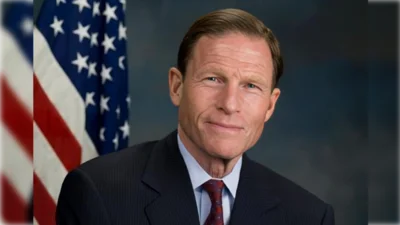Congresswoman Barbara Lee (D-CA), Chair of the State, Foreign Operations, and Related Programs Appropriations Subcommittee, delivered the following remarks at the Subcommittee's hearing on Leading by Action: The Fierce Urgency for Diversity and Inclusion in the Foreign Policy Workforce:
Thank you all for joining us for this hearing about the urgent need for reform to increase diversity in our foreign policy workforce.
For far too long, people of color have had a limited voice and limited opportunities to shape our country’s foreign policy. This chronic and entrenched lack of diversity and inclusion causes major challenges for our nation - at home and abroad.
Lack of diversity among our workforce can lead to whole classes of issues-including systemic racism, poverty, inequality, climate justice-being disregarded. Without enough diversity in the people we hire and promote in our foreign policy workforce, we often face the troubling reality of groupthink.
When people abroad see the uniformity of our diplomatic corps, they question our commitment to inclusion. And when Americans of color don’t see their priorities acknowledged, they feel alienated by their own government. When they see fewer opportunities to shape foreign policy, they are less likely to engage in shaping foreign policy-and in politics generally.
Last year, at the request of Congress, the Government Accountability Office reviewed diversity and inclusion in the foreign affairs workforce. That GAO study found that the State Department has abjectly failed to reflect America in its hiring and promotions. Between 2002 and 2018, the percentage of African Americans working at the State Department actually declined from 17% to 15%. Additionally, the percentage of African American women in USAID’s civil service workforce dropped from 36% in 2002 to just 23% in 2018. Hispanic, Asian-American, and Indigenous people face similar obstacles.
At the Department of State, the GAO found a significant disparity in the rates of promotions for racial and ethnic minorities, up to 42% less than their white counterparts. Similarly, minorities at USAID were up to 41% less likely to be promoted compared to whites in the civil service.
And racial and ethnic minorities were significantly underrepresented in the senior ranks of the civil and foreign service. At State, racial and ethnic minorities make up only 13% of the executive level workforce.
Most disturbing, these findings echo those of a GAO study on the same topic from 1989 - over thirty years ago. Both studies found disparities in rates of promotion; underrepresentation of minorities in leadership positions; and institutional barriers not being addressed. Numerous Secretaries of State and administrations-Democratic and Republican alike- promised to make changes to increase diversity. Clearly, these promises were not kept.
For years, we have heard commitments from leadership at State and USAID that they would focus on recruitment. The evidence shows that this mantra has failed. After thirty years of failure, we can’t wait for evolutionary change. We need to try something different. It will be uncomfortable. It will force everyone at State and USAID to change the way they do business. But I want everyone involved to understand the fierce urgency of this issue. The United States Government cannot effectively represent America abroad unless it hires, promotes, retains, and values a workforce that truly represents America. The time for study and debate is over. The time for change is here.
I stand ready to work with Secretary Blinken, Administrator Power, and other leaders in the executive branch and on Capitol Hill to tackle this problem.
There are a host of good ideas to consider. Representative Castro’s “Diversity and Inclusion at the Department of State Act" directs the Department to establish benchmarks and goals for the assignment of personnel and reforms the foreign service performance review process to include the support of diversity and inclusion as a key criteria for promotion.
Representative Bass has introduced the “Represent Americans Abroad Act" to create a pathway program to attract highly qualified mid-career professionals, who are also members of minority groups, to the foreign service.
I hope this hearing will be the start of us moving toward bold action, experimentation and implementation to solve this problem. In particular, I will ask our witnesses to share what steps they believe Secretary Blinken should take in the first three, six and twelve months to demonstrate progress. Because we can’t wait years for this to change. It needs to change now.
In my role as Chairwoman of this Subcommittee I am committed to advancing real, impactful solutions to address these entrenched institutional barriers to diversity. I have been fighting for years to create more opportunities for people of color in our foreign policy workforce. It is past time to enact bold, forward leaning policy solutions. This hearing is our first step in that direction.
I look forward to hearing our distinguished panel’s thoughts on these policy solutions and what, in addition, can be done administratively or through legislative action, if necessary.
Source: U.S. Department of HCA









